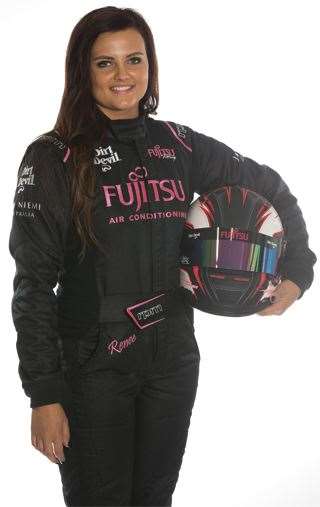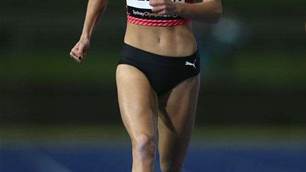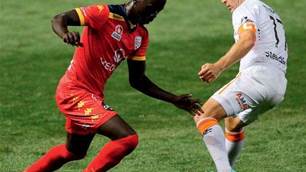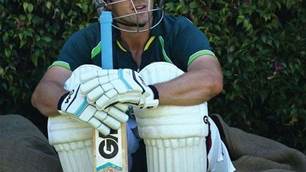In this age of equal opportunities, the advance of women into elite motorsport has been peculiarly slow.
 In this age of equal opportunities, the advance of women into elite motorsport has been peculiarly slow. Despite a scattering of notable triumphs – like Michele Mouton’s win at the 1981 San Remo Rally, Jutta Kleinschmidt’s victory in the 2001 Paris-Dakar and Danica Patrick’s first IndyCar win in 2008 – female drivers remain peripheral in elite motorsport. This is particularly true in our part of the world, where a pair of runner-up finishes from Leanne Tander in Australian Formula Three remain the high-water mark for female drivers. Can 18-year-old Renee Gracie turn the tide?
In this age of equal opportunities, the advance of women into elite motorsport has been peculiarly slow. Despite a scattering of notable triumphs – like Michele Mouton’s win at the 1981 San Remo Rally, Jutta Kleinschmidt’s victory in the 2001 Paris-Dakar and Danica Patrick’s first IndyCar win in 2008 – female drivers remain peripheral in elite motorsport. This is particularly true in our part of the world, where a pair of runner-up finishes from Leanne Tander in Australian Formula Three remain the high-water mark for female drivers. Can 18-year-old Renee Gracie turn the tide?
What’s her story?
Born in Brisbane, Gracie was raised in a decidedly non-motorsport family. “I think the first V8 race I watched on TV with Dad was also the first V8 race he watched,” she says. It was only as a 13-year-old that she first jumped in a go-kart. Enthralled, she became a regular at the Willowbank Raceway in Ipswich. After a year of amateurish dabbling, Gracie decided to pursue a career in karting. For a wilful 14-year-old, the appeal lay in the individuality of the sport. “I liked the fact that I wasn’t in a team. It was all up to me, all up to the driver. My decisions and my mistakes decided whether I won or lost.”
She steadily rose through the ranks before breaking into Junior Rotax, a major national series, in 2010. Her second year in this series proved a breakthrough.
She finish fifth and was subsequently recruited into the Fujitsu Cool Driver Program, a national youth development scheme that had proved the making of V8 prodigy Scott McLaughlin.
After a year in the senior karting ranks, Gracie and the manager of the Fujitsu Program, Chris Jewell, began looking further afield. Although the most logical step appeared to be Formula Ford, a junior open-wheel formula that had honed the talents of V8 guns like Jamie Whincup, Craig Lowndes and Jason Bright, she couldn’t secure any corporate support. According to Jewell, however, she could garner backing in the Porsche Carrera Cup, one of two primary support categories for V8 Supercars. “So we made the decision: do we go racing while not ready and get ready in the public eye? Or, do we not go racing at all? Obviously, we chose to go racing.”
Gracie entered this year’s Carrera Cup – the first female to do so in the nine-year history of the series – with the aim of finishing every race. A 14th-place finish in Townsville has been her strongest result. “Everything’s been a massive learning curve,” she says. “From the first day I sat in the car, I haven’t known the tracks, I haven’t known the tyres – I’ve had to get used to everything. And every time I hop in the car and sit in the seat, I learn something new about myself, the car, the track. I’m forever learning.”
Who’s she like?
The obvious comparison is Danica Patrick, so it’s little surprise the NASCAR heroine has proved a guiding light thus far. “I think the path Danica’s gone down is definitely going to be relevant to the path I want to follow,” says Gracie. “So I certainly keep a keen eye on her.” Indeed, when asked to map out her ideal career path, Gracie lists a stint in the Dunlop Series, followed by a period in V8 Supercars, before eventually moving to the States. “My ultimate, ultimate, ultimate dream would be to race NASCAR,” she says.
According to Jewell, Gracie’s chief attributes are her ability to remain calm, her great reflexes and her strong motorsport intellect. “This is a very technical sport,” he says. “There’s a lot of data and information they can measure from the car that shows you where you’re slow, where you need to find time etc. Her ability to comprehend this data is second to none.”
Beyond this, Jewell points to Gracie’s mongrel – something Patrick has in spades – as a vital component of her racing psyche. “A girl in a male domain has to stand up and be counted. Renee needs to have that tiger, she has to stand her ground. Because it’ll be a long journey if she becomes subliminal.”
What do they say?
“Yes, doors have opened because she’s a female. But those doors get slammed shut pretty quickly if she’s just a no-hoper running around at the back of the field. Renee’s unbelievably committed to her sport. She doesn’t want to be good for a girl, she just wants to be good. She doesn’t want to be the best of the girls, she wants to be a good racing car driver.”
− Chris Jewell, manager of the Fujitsu Cool Drivers Program and V8 Supercars commentator
− Aaron Scott
Related Articles

Ella Nelson has already beaten a few of world's best

Wing wizard Awer Mabil out to help Socceroos


.png&h=115&w=225&c=1&s=1)










